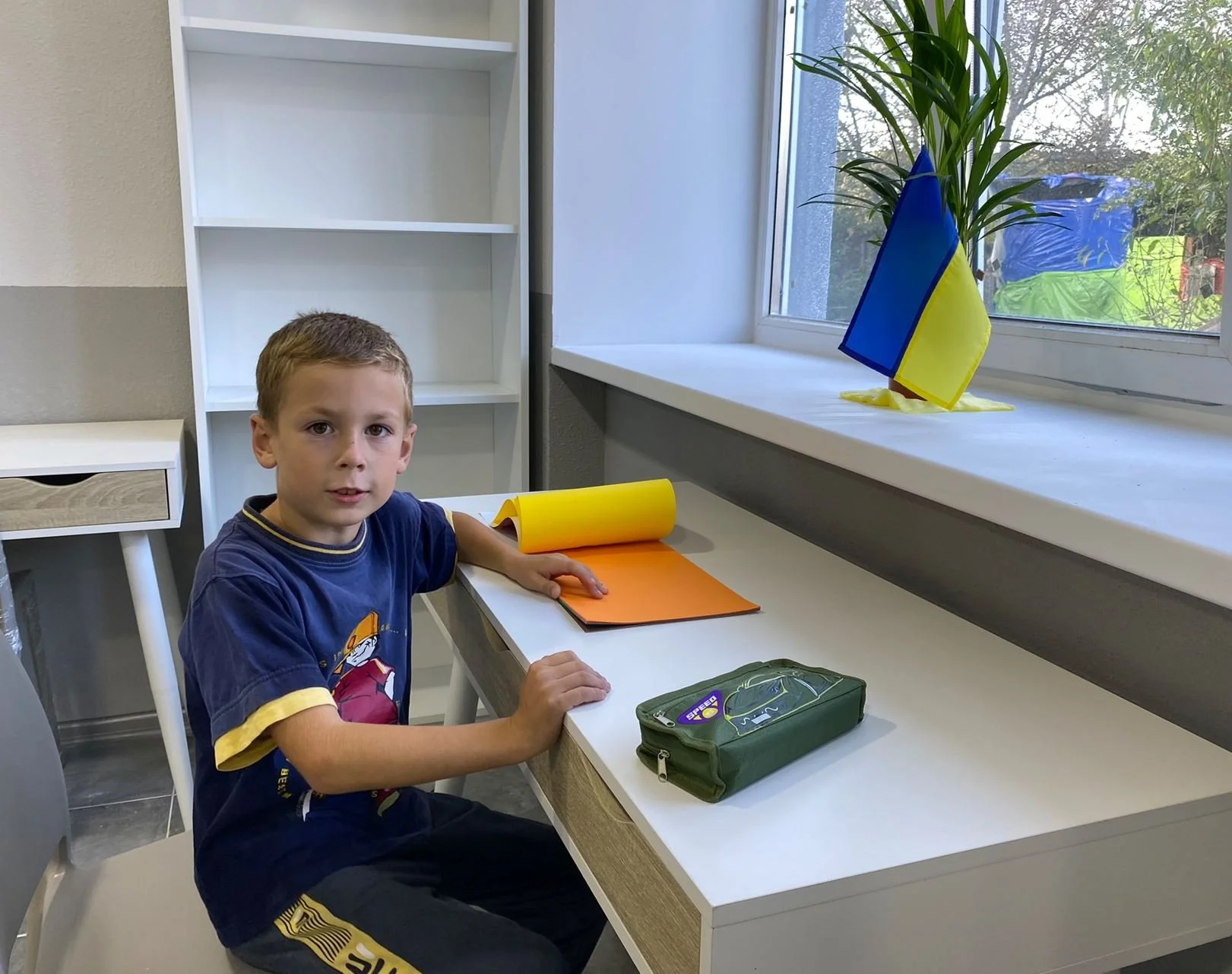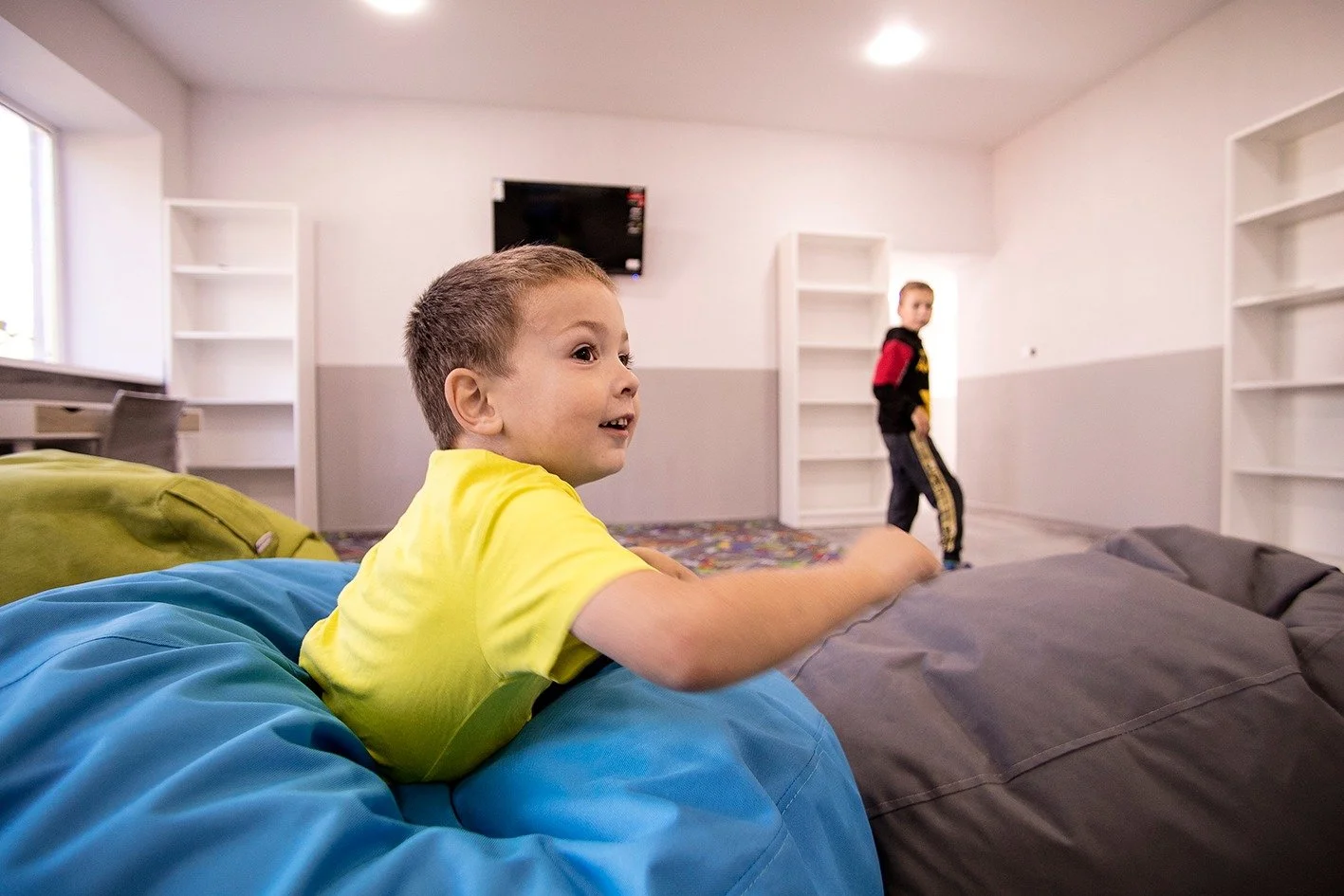PSYCHOLOGICAL SUPPORT SERVICES
November 19th marks 1000 days since the start of the war. Ukrainian people are grappling with deep trauma and grief, families torn apart, dreams shattered, lives lost, and futures thrown into disarray.
Psychological support is the #1 need for Ukrainian people on their journeys to rebuilding their lives.
CURRENT PROGRAMS
Art therapy for children orphaned by the war
We are proud to partner with a Ukrainian charitable organization Children of Heros to offer Art Therapy Programs for kids who have lost one or both parents since the start of the invasion.
So far we’ve been able to offer a program that helped over 50 children per month. We hope to offer more of this vital support in the future. Read one of the stories below.
2. Tools for education and psychological support services
In frontline areas, many children can't access education or psychological support as services moved online for safety. To bridge this gap, we’ve provided over 50 children with electronic devices with long-lasting batteries, ensuring they stay connected despite frequent power outages.
These are just some of the stories that we’ve been able to help. The needs for these simple tools remain, and we hope that you will continue to support us!
Play and Study Spaces for Children
We provided a play and study space for kids in a safer area of Ukraine. These brothers, Tima (4) and Ilya (7) from an occupied village in the Bakhmut region (pictured below with their mom Olena, and with the founder of our organization, Nadya Tkachenko). Behind those smiles, there is so much trauma which they simply cannot express in words...
When they were just 2 and 5 years old their family of four was woken up by the harrowing sound of multiple missiles all at once destroying nearby houses in their village - forced to shelter in the tiny cellar for 3 weeks in the frigid cold of March 2022 - with no water, electricity, and barely any food. After escaping near-death while fleeing from the occupied territory, traveling with their family from town to town as refugees under constant shelling, and living in an unheated abandoned house last winter, they’ve recently moved into the residential center that we built in a safer area of Ukraine.
These two boys are lucky to have both parents still alive. But many children just like them have lost at least one, sometimes both parents, to the war. We're creating programs that will be aimed at helping kids like this process their unimaginable experience.
We Hope To Be Able to Offer The Following
KIDS CLUBS FOR TEENS
Teens find it difficult to openly share their experiences, yet they are exceptionally fragile as they navigate their lives within the volatile environment of war and displacement... Like these sisters from the Kherson region (pictured with their mom, center) who had dreams and plans that were shattered...
Initially, they chose to live under constant shelling for many months just so that they could continue studying in their schools in the company of their friends. But after russia deliberately destroyed the nearby Kakhovka dam and their region was flooded, leaving them without access to drinking water, their family made the difficult choice to relocate. They finally found their way to our residential center where they can access their school classes online.
How can they make sense of what they have been through amd grasp the new realities while feeling isolated and trying to navigate social interactions in a new place?
Children's clubs is an initial step in aiding them in their healing - places where they can gather, bond over shared interests, and receive coping tools from trained experts, all while working towards destigmatizing discussions about mental well-being.
SUPPORT GROUPS FOR ADULTS
In Ukraine, lingering stigma often prevents individuals from acknowledging their need for psychological support, even when they exhibit clear signs of severe anxiety, depression, and PTSD. Despite this, we've seen that psychologist-led support groups, focused on community and storytelling rather than mental health concerns, have offered a therapeutic experience to many.
…like for Natalia from Mariupol (above left), who tries to smile politely while she bravely confides that her entire family was killed right before her eyes. She recounts how she was thrown from her window by the shockwave of a nearby missile explosion, resulting in a head injury and a three-week-long coma. She is 'safe' now but finds herself all alone, grieving, and plagued by multiple and incapacitating panic attacks every day. Connecting with people who now feel like family and who can relate to her experience helps her on her healing journey.
…or like for Emilia from Kherson region (above center) who is in a constant state of tears, startles at every loud noise, and can’t sleep at night. She recounts her harrowing journey of escaping from the occupied territory and passing through filtration camps, all while taking care of her two disabled adult children. Through tears she manages to joke that she's not yet entirely homeless as her house is miraculously intact. Only problem is… an unexploded missile is lodged upright in her backyard garden, essentially a ticking time bomb, waiting for a triggering shockwave from a nearby explosion. Finding humor in such distressing stories, and sharing them with peers, along with guidance and coping tools from a trained psychologist, is what fosters the healing process for many.
Psychological support is need #1 and we invite you to join us in providing solutions.
By making a donation, you will create the most direct impact and help people like these rebuild their hope, their strengths, and their lives.
















